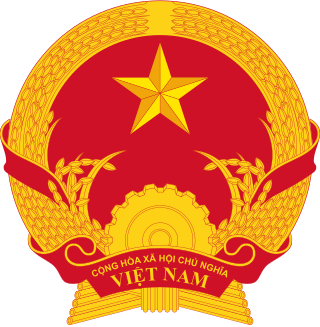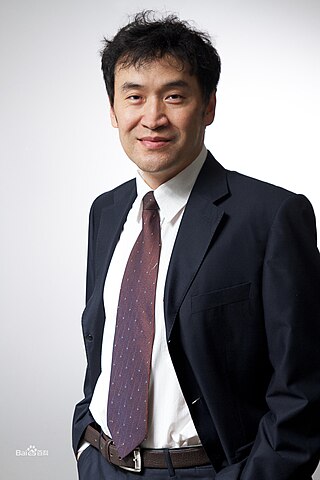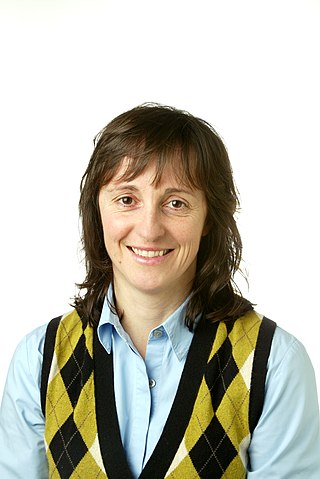Regulation is the management of complex systems according to a set of rules and trends. In systems theory, these types of rules exist in various fields of biology and society, but the term has slightly different meanings according to context. For example:

Elections in the Socialist Republic of Vietnam occur under a one-party political system led by the Communist Party of Vietnam (CPV). Direct elections occurred at both the local and national levels to elect members of the People's Councils and the National Assembly, with all candidate nominations pre-approved by the CPV-led Vietnamese Fatherland Front. Elections serve the purposes of information acquisition and cooptation rather than popularity contest but still remain of significance to the political life and legitimacy of the Vietnamese party-state.

The ostrich effect, also known as the ostrich problem, was originally coined by Galai & Sade (2003). The name comes from the common legend that ostriches bury their heads in the sand to avoid danger. This effect is a cognitive bias where people tend to “bury their head in the sand” and avoid potentially negative but useful information, such as feedback on progress, to avoid psychological discomfort.
Economic law is a set of legal rules for regulating economic activity. Economics can be defined as "a social science concerned with the production, distribution, and consumption of goods and services." The regulation of such phenomena, law, can be defined as "customs, practices, and rules of conduct of a community that are recognized as binding by the community", where "enforcement of the body of rules is through a controlling authority." Accordingly, different states have their own legal infrastructure and produce different provisions of goods and services.

Tsakaling Gewog is a gewog of Mongar District, Bhutan. These gewog have an area of 72 km.sq with 362 household and 3469 population.
The Western Finance Association (WFA) is an international professional society for academicians and practitioners with a scholarly interest in the development and application of research in finance.
The Institute for Nonprofit News (INN) is a non-profit consortium of nonprofit journalism organizations. The organization promotes nonprofit investigative and public service journalism by supporting its members and the nonprofit news industry as a whole. Examples of services offered by INN includes helping news organizations with collaborations, training in best-practices and fundraising, and providing affordable back-office services.
Epistemology of finance is a broad field of study that aims at providing a conceptual framework(s) for the interpretation of mathematical models in finance as well as the study of their possible limitations, in order to determine the epistemological standards according to which financial theory should be assessed against any associated empirical reality. A key problem is to what extent the combination of self-reference and adaption (reflexivity) undermine the stability, uniqueness, and usefulness of predictive models in finance and economics.

Kwaku Afriyie is a Ghanaian politician, farmer and a member of the New Patriotic Party in Ghana. He was the Western Regional minister of Ghana from 2017 to 2018. He was appointed by President Nana Addo Danquah Akuffo-Addo in January 2017 and was approved by the Members of Parliament in February 2017. He is the member of Parliament for Sefwi Wiawso constituency in the Western North Region of Ghana in 7th and Eighth Parliament of the Fourth Republic of Ghana.

Andrea Sironi is an Italian academic. He is a Professor of Banking and Finance at Bocconi University, where he was the Rector from 2012 to 2016, and has been the President since 2022. He also serves as chairman of Assicurazioni Generali and Fondazione AIRC per la Ricerca sul Cancro.

Poland was one of the founding members of the International Monetary Fund (IMF) in 1945. Under pressure from the Soviet Union, the country withdrew in 1950, believing that the organization had become a tool for the United States. Poland rejoined the IMF in 1986, following the end of martial law in Poland (1981–1983) and the withdrawal of the US veto against Polish membership.

Chen Long currently serves as the director of Luohan Academy, the think tank of Alibaba. Before this, he was the chief strategy officer of Ant Financial Group since 2014. Chen received his Ph.D. in Finance from University of Toronto, and was a tenured professor at Olin Business School, Washington University in St. Louis. After returning to China in 2010, Chen took the position of the Associate Dean of Cheung Kong Graduate School of Business (CKGSB), Professor of Finance.

Damir Filipović is a Swiss mathematician specializing in quantitative finance. He holds the Swissquote Chair in Quantitative Finance and is the director of the Swiss Finance Institute at EPFL.
The Aruoba-Diebold-Scotti Business Conditions Index is a coincident business cycle indicator used in macroeconomics in the United States. The index measures business activity, which may be correlated with periods of expansion and contraction in the economy. The primary and novel function of the ADS index stems from its use of high-frequency economic data and subsequent high-frequency updating, opposed to the traditionally highly-lagged and infrequently-published macroeconomic data such as GDP.

Luisa Lambertini is an Italian economist specializing in monetary and fiscal policies. She is a professor of economics at EPFL, where she holds the Chair of International Finance at the College of Management of Technology.
A legal singularity is a hypothetical future point in time beyond which the law is much more completely specified, with human lawmakers and other legal actors being supported by rapid technological advancements and artificial intelligence (AI), leading to a vast reduction in legal uncertainty.
The Advertising Regulatory Council of Nigeria (ARCON), formerly called the Advertising Practitioners Council of Nigeria, is a regulatory body established by the Nigerian Government in 2022. It was formed to regulate and control advertising in Nigeria, replacing the Advertising Practitioners Council of Nigeria Act (APCON) with the Advertising Regulatory Council of Nigeria Act, 2022.
Rachel Rebouché is an American attorney and reproductive law scholar. She is the James E. Beasley professor of law and the dean of Beasley School of Law at Temple University in Philadelphia. She is also a faculty fellow of the Center for Public Health Law Research at Temple University. Rebouché is known for her scholarship in reproductive law and has been frequently quoted in news outlets such as the New York Times, USA Today, Politico, Rolling Stone, and The Atlantic, especially since the overturning of Roe v Wade.










